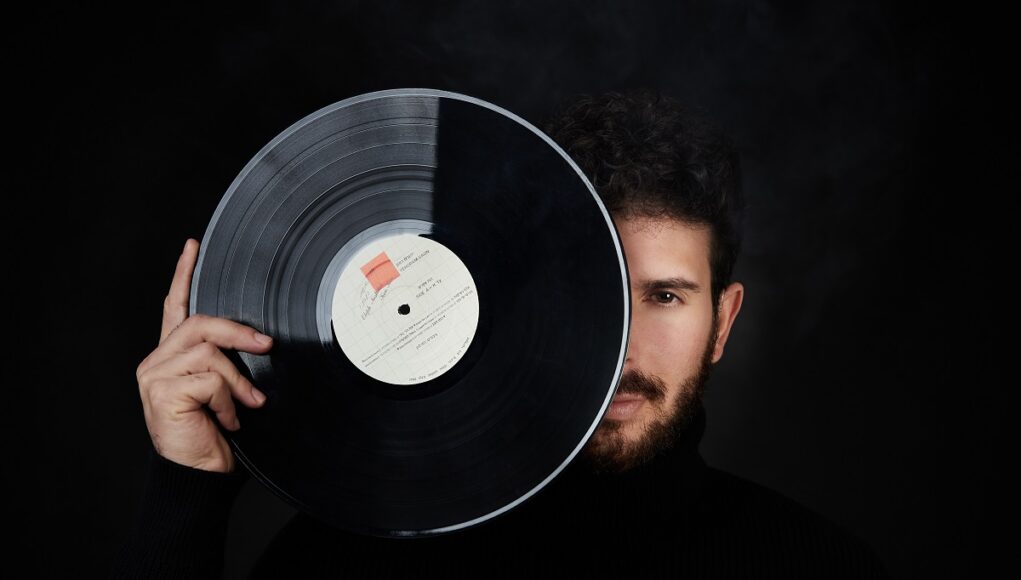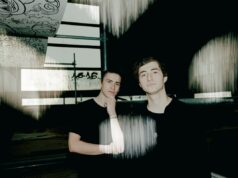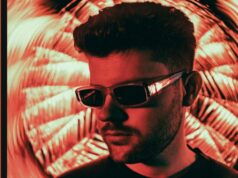Can you tell us about your background and how you first got started in music? How did you first become interested in electronic music and what drew you to it as a medium for self-expression?
My music path started early on with a mix of rock and hip-hop tunes from my dad. These sounds sparked my love for rhythm, making me dream about drumming, where I felt a solid connection to the beat. At 12, I began dabbling in music creation with a program called eJay. It let me mix different loops to make my music easily, even though I didn’t get the technical side.
At the same time, I picked up the drums and started playing with my friends. Drums felt right because they were simple for me; there was no need to worry about chords or notes, just the beat. This time was vital for getting into the groove and bass sounds, pushing me towards electronic music like trance and house. During school breaks, I would lose myself in music, imagining myself as a DJ.
By age 14, I started DJing at school parties and playing electronic beats that were new to most people there. This was my first taste of seeing what music got people moving. However, when I tried making my music with Cubase at 16, I hit a wall. I struggled with getting the tunes right and couldn’t figure out why, which made me stop trying for a while.
Moving to Tel Aviv at 21 was a turning point. I dove into the city’s underground techno scene and loved it. This inspired me to give music production another shot, this time with Logic Pro X and Ableton Live. Though I started many projects, especially after nights out. This journey, with its ups and downs, really shows how much I’ve grown and how I’ve stuck with electronic music as my way to express myself.
Who are some of your biggest musical influences, both within electronic music and outside of it? How have these influences shaped your sound and approach to creating music?
Infected Mushroom, my biggest musical influencer in the electronic music field, has always inspired me. Their unique approach to music, sounds, storytelling, and groove was magical. Despite the limited technology of the 90s, they created unique and identifiable sounds that gave the world a distinct musical signature.
This is something I always try to achieve, regardless of the genre – be it rock, techno, or trance. For me, the sound signature and the story that travels above it are important. I always strive to think outside the box to challenge my creativity and create new and exciting sounds that keep my tracks unique and authentic to myself.
Can you walk us through your creative process for writing and recording a new song? How do you typically begin a new track, and what are some of the key elements or techniques you focus on as you develop it
Defining the process of creating music is quite challenging for me as each track has its own unique journey. Some tracks start with a specific idea while others start with the bassline or melody. However, most of my creative processes are initiated in nature or at my parents‘ house rather than in the studio. Disconnecting from the outside world helps me to focus on the message, harmony, and sounds that I aim to convey. Unlike other producers, I do not usually take inspiration from other tracks or references, instead, each track needs its own space to develop a unique vibe and sound and is created from scratch. In this way I keep my tracks unique and deliver the exact feeling and vibe that I feel at the moment of the creation.
Your latest project is really gaining traction, can you tell us about it? How did this project come about and what inspired you to create it? What was your approach to making it and what do you think sets it apart from your previous work?
I aimed to include some psychedelic elements and trance-style sounds for this project. It was my first time experimenting with combining melodic and psychedelic elements without following any specific genre rules, with the goal of creating something unique and original. I drew inspiration from the trance sounds of the 90s and found it fascinating, so I decided to incorporate it into my tracks. The result was quite cool!
What has been the highlight of your career so far? Can you talk about a specific moment or accomplishment that stands out as particularly meaningful to you?
The most unforgettable moment in my career was playing my original track at The Block, a legendary club that has hosted countless famous DJs in the past decade. Seeing the crowd dance and move to my melody was extremely inspiring and exhilarating. It was at that moment that I realized that nothing would stop me from producing and releasing my music to the world.
Can you tell us about any upcoming projects or collaborations you have in the works? Are there any new directions or sounds you’re exploring in your music right now?
I’m really excited about 2024. I’m working on some collaborations that I can’t share yet, but I can’t wait to release them! I’m focusing on the psy-tech genre but with my unique interpretation. I believe that more and more people will go to nature parties, be exposed to green and blue spaces, and dance to magical sounds. Most of the nature parties these days are trance-oriented, and I believe that the psy-tech genre can bring something new to both worlds – the nature parties and the clubs.
As a musician, what message do you hope to convey through your music? What themes or ideas do you find yourself returning to again and again in your work?
That’s a nice question!
My tracks message
Can you tell us about any challenges you have faced in your career and how you overcame them? Have there been any specific obstacles or difficulties you’ve had to navigate as an electronic musician?
I faced many challenges along the way. First and foremost, my hearing limitation has been a huge obstacle. It’s difficult to express how much my motivation has fluctuated based on the people around me. It’s tough to do something when you can’t fully understand it and have to rely on guesswork. It took me some time to find techniques that actually worked, but the journey was difficult. Another challenge was getting recognition for my music, which is vastly different from most genres. Traditional labels find it hard to sign me because my sound is so unique. Therefore, I want to express my gratitude to my label Deed Music, who understood my music and message and signed my recent tracks.
How do you see the music industry evolving in the next 5 years? What changes do you think we’ll see in terms of technology, distribution, and audience engagement?
I believe that AI will revolutionize music creation by making it easier and more accessible to beginners. However, this will also present a challenge to artists, as the technology will provide them with competition. For instance, imagine being able to ask an AI to create the sound of a famous artist like Stephan Bodzin, and have it generate the exact movements of the Moog synthesizer. This kind of technology may be similar to ghost producers, but it is more accessible. I believe that the music industry should embrace AI and find ways to shorten the music creation process, without compromising on creativity.
I believe that as artists, we should constantly strive to find new ways to captivate our audience, especially as social media continues to grow and dominate. While platforms like Instagram and Tiktok reels can have an impact, live shows and performances are where the real magic happens. Audiences are increasingly eager to experience mind-blowing effects, such as the mesmerizing visuals that can be created using technology, and this demand is likely to keep growing over time.
What advice would you give to aspiring musicians trying to make it in the industry? Are there any particular tips or strategies you’ve found to be particularly effective in building a career as an electronic musician?
I believe that it is crucial to stay true to yourself and not try to imitate anyone else. Every individual’s approach is unique, which is what makes them stand out and distinguishes them from the plethora of music artists around the world. Your social media presence is also vital, and you should always showcase your original tracks to gain more attention and have the audience eagerly anticipate your future performances. Keep working on your music and never give up, as Erez Eisen (Infected Mushroom) once told me, ‚persistence is the key to success‘.
What’s next for you?
I plan to release multiple tracks globally in the upcoming year and hope to gain recognition from fellow musicians.








